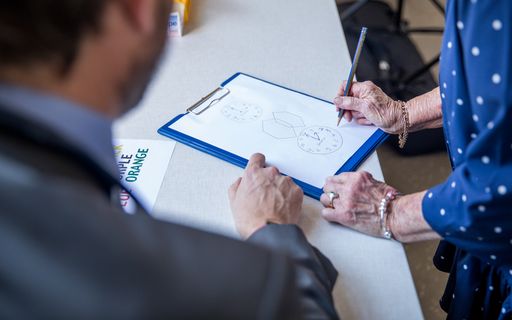Memory ReVIEW
There are many reasons for memory / cognition to decline as we age. It is important to identify when these changes are occurring and seek medical review. Our cognition can be affected due to poor sleep, medication side effects, low vitamin B12, hormonal changes, mood disturbances and neurodegenerative disorders. It is important we exclude and treat the reversible causes that can happen to anyone. A pathology check and brain imaging is essential to help clarify the contributing factors.
Mild cognitive impairment
Mild cognitive impairment can occur as we age. It occurs when the cognition has declined over time but people can still live independently without assistance. Mild cognitive impairment is important to diagnosis and monitor over time. It is important to exclude reversible causes and stabilise the impairment as best as possible. Mild cognitive impairment can remain stable for 1/3 of people, improve over time with strategies and routine for some people and progress to early neurodegenerative diseases for others.

Common neurodegenerative diseases are:
Alzheimer’s dementia
A German doctor, Alois Alzheimer first described Alzheimer’s dementia in 1907 when he identified the classic amyloid plaques during an autopsy in the brain of a patient he had been treating with unusual symptoms. Subsequently this pattern of disease would become known as Alzheimer’s disease.
Alzheimer’s dementia is the most common neurodegenerative disease accounting for 50-70% of all dementia. Unfortunately, it is a progressive dementia caused by degeneration of brain cells secondary to the build-up of amyloid plaque within the brain. Diagnosis is based on identification of amyloid plaque on brain scanning and much research is directed into halting the accumulation of this destructive protein. While some new medical therapies can slow the progression of Alzheimer’s dementia there is still no cure.
Alzheimer’s dementia is commonly not diagnosed for three or more years after the initial symptoms are noted by family and friends. Early symptoms are short term memory loss that may be noted as frequent memory loss within conversations, repetition in conversation and vagueness about the content of a conversation. Long term memory is often preserved until late in the disease.
Other symptoms of Alzheimer's dementia might be:
- Trouble finding the right word.
- Slowness in processing instructions or questions.
- Poor organization.
- Loss of problem-solving skills.
- Disorientation even in well-known places.
- Behavioural changes.
- Mood and personality changes.
- Anxiety and depression are common symptoms in the early stages.
The geriatricians at Age Right are able to prescribe a number of cognitive enhancers that can slow, and in some cases, stall the early signs of dementia. Commencing these medications in the early stages of the disease is more beneficial then waiting for advanced stages of the disease that impacts on living at home independently. Cognitive enhancers can only be prescribed by a neurologist, psychiatrist or a geriatrician under the PBS system.
Vascular dementia
A healthy blood supply is vital to a healthy brain. If the blood vessels are unhealthy, such as in diabetics or those who have had prolonged hypertension, small strokes can occur. Cognitive function can be impacted by multiple small strokes, each one on its own may not be noticed but the cumulative effect may lead to memory loss and other symptoms of dementia. It is important to diagnose vascular dementia as a separate cause of dementia as treatment of elevated blood pressure, diabetes and cholesterol can slow and even halt the progression of memory loss.
The changes that can occur with vascular dementia are somewhat different to those that occur in Alzheimer’s dementia and include:

- Change in reasoning.
- Loss of ability to plan.
- Poor judgement.
- Memory loss occurs but is less prominent than in Alzheimer’s.
- Changes in behaviour.
- Decreased mobility.
- Loss of continence.
Treatment is targeted at optimising vascular risk factors and management of existing symptoms. Vascular dementia may occur at the same time as Alzheimer’s disease and in this case, there may be a role for cognitive enhancing medication.
Other dementia types:

- Parkinson’s disease with dementia
- Behavioural-variant frontotemporal dementia
- Semantic dementia
- Progressive non-fluent aphasia
- Progressive Supranuclear Palsy
- Lewy-Body dementia
- Alcohol-related dementia
- Prion disease
- Huntington disease
- HIV-associated neurocognitive disorder

